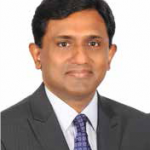
Ayurveda Day 2024, celebrated on October 29 across 150 countries, focuses on the theme “Ayurveda Innovations for Global Health.” This year, Ayurveda’s global impact is driven by diplomacy, trade, and the migration of Indian and South Asian communities worldwide. The expansion of the traditional Indian medicine’s influence is shaped by increased exchanges of people and goods, alongside a thriving diaspora, which has helped globalise Ayurvedic healing practices.
In the evolving health landscape, diverse medical traditions such as allopathy, Ayurvedic treatment, and traditional Chinese medicine coexist, despite varying levels of regulation. Ayurvedic treatment, with its unique approach to wellness, offers significant contributions to medical pluralism, efforts to decolonise health, and opportunities for strategic health diplomacy.
READ | Binging on bans: India needs a balanced approach to anti-tobacco messaging
Ayurveda as a global health system
Despite Ayurvedic treatment’s acceptance as a legitimate healthcare practice in India, it lacks global accreditation as a recognised medical system. The Ministry of AYUSH is working to establish its credibility on the international stage, with the All India Institute of Ayurveda spearheading these efforts. However, for the traditional practices to gain a place in global healthcare, it must develop a robust, evidence-based foundation. Ayurvedic products should be positioned as therapeutic medicines rather than merely alternative supplements, under appropriate regulatory standards like the Therapeutic Goods Administration.
The government has recently defined “Ayurveda Aahar” as food prepared following recipes, ingredients, or processes described in roughly eighty ancient Ayurvedic texts. However, these products lack nutritional or medicinal bases in their promotion. Acknowledging traditional systems’ role in healthcare, the World Health Assembly resolution (WHA 56.31) aims to promote traditional systems of medicine, including Ayurvedic treatment, with specific global standards and practices.
Learning from China
Traditional Chinese Medicine (TCM) provides a model for Ayurvedic treatment’s integration into the global health system. For instance, in Australia, Chinese medicine is a nationally registered profession regulated by the Australian Health Practitioner Regulation Agency (AHPRA). Australia’s regulation under the Health Practitioner Regulation National Law and accreditation by the Chinese Medicine Board of Australia (CMBA) ensure high standards of safety, training, and qualification for TCM practitioners. This model has propelled TCM’s acceptance in 183 nations, making it a valuable reference for the Ministry of AYUSH as it seeks to establish similar standards for Ayurveda.
For the treatment to be globally acknowledged, it must address the challenges of evidence-informed medicine and standardisation in healthcare. Evidence-informed medicine relies on rigorously tested, transparent practices to ensure patient safety and care quality. The Ayurvedic tradition, known for its individualised approach, must incorporate randomised controlled trials (RCTs) as a foundation for evidence-based practice. Building a comprehensive database of RCTs and leveraging Cochrane systematic reviews would enhance Ayurvedic treatment’s global credibility.
Preserving Ayurveda’s unique strengths
Ayurvedic treatment’s strengths lie in preventive healthcare and self-care practices. These should be emphasised rather than diverting resources to controversial practices like Ayurvedic surgery. Competing with modern medicine in areas outside Ayurveda’s traditional scope may detract from its inherent value and risk creating a competitive, profit-driven model that mirrors the flaws of hegemonic modern medicine.
The Ministry of AYUSH has signed multiple Memoranda of Understanding (MoUs) with countries worldwide to foster collaboration in Ayurvedic treatment. However, its promotion in health diplomacy requires scientific rigor rather than nationalist rhetoric. Credible scientific pathways must be prioritised to showcase Ayurveda as a reliable medical knowledge system.
Ayurveda’s contributions to global health need to be realistic within the context of rapid advancements in global healthcare. Technological innovations—such as artificial intelligence, 3D printing, telemedicine, and assistive health technologies—are revolutionising healthcare delivery. Ayurveda must find its place by aligning with contemporary science to address pressing health issues, including non-communicable diseases, mental health, antimicrobial resistance, and geriatric care.
In his remarks, Vaidya Rajesh Kotecha, Secretary of the Ministry of AYUSH, highlighted Ayurveda Day’s focus on integrating Ayurveda with modern science, with several digital initiatives like Ayurgyan Scheme, Ayush Research Portal, and the Namaste Portal enhancing public access to Ayurvedic knowledge. Furthermore, the Ministry of AYUSH is involving startups and industry players to place Ayurveda at the centre of health innovation.
For Ayurveda to fulfil its global health ambitions, the Ministry of AYUSH must emphasise science-based training and practice. Ayurveda’s integration into global health would benefit from developing advanced health diplomacy skills, aiming for realistic recognition in the global health arena. Only a science-driven, evidence-informed approach can secure Ayurveda’s place in global healthcare, steering clear of unsubstantiated nationalistic narratives.
Dr Joe Thomas is Global Public Health Chair at Sustainable Policy Solutions Foundation, a policy think tank based in New Delhi. He is also Professor of Public Health at Institute of Health and Management, Victoria, Australia. Opinions expressed in this article are personal.

